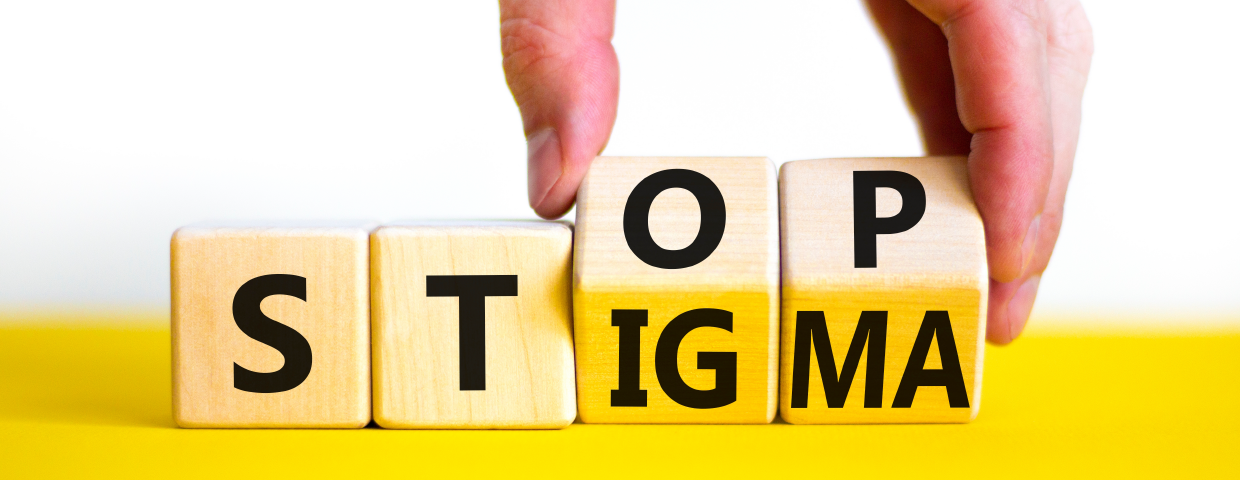
Stigmas in Substance Use Disorders
Substance abuse disorder affects more than 11.5 million people each year. Many families and loved ones have someone in their lives that have suffered from addiction. Family Life Center shares the same message as the “Stop Judging. Start Healing.” campaign that was launched by The Alabama Department of Public Health and the Alabama Department of Mental Health. This campaign is to help change the way we talk about mental health and substance use disorders. The way medical professionals and the general public talk about addiction can have a negative impact on recovery and create a stigma that can cause individuals to be afraid to ask for help.
What is Stigma?
Stigma means a mark or sign of shame, disgrace, or disapproval; of being shunned or rejected by others. It emerges when people feel uneasy or embarrassed to talk about behavior they perceive as different.
According to the Stopjudging.org campaign, there are three types of stigmas that identify with those suffering from addiction or mental illnesses.
PUBLIC | Encompasses the attitudes and feelings expressed by many in the general public or their family members toward persons living with Opioid Use Disorder (OUD), HIV and viral Hepatitis, Substance Use Disorder (SUD), or Mental Illness (MI).
INSTITUTIONAL | When negative attitudes and behaviors about physical and mental illnesses are incorporated into the policies, practices, and cultures of health care organizations.
SELF- STIGMA | When individuals internalize the disrespectful images that society, a community, or a peer group perpetuates, which may lead individuals to refrain from seeking treatment. (Alabama Department of Mental Health and the Alabama Department of Public Health.)
How can Stigma Effect Recovery?
The first thing that we want people to know is that a person should not be defined by addiction. In society, we so often call someone an addict, bipolar, or an alcoholic without considering the fact that we are negatively objectifying a person, reducing them to their clinical diagnosis, not who they truly are. The medical community has proven that addiction is a disorder/disease, yet the stigma put on those with a substance use disorder is still negative.
One simple way we can help change the stigma of those who suffer from SUD or MI is by changing the word “is” to “has.” For example, instead of saying “(name) is an addict.” you would say, “(name) has an addiction or a substance use disorder.” Person-first language puts a person before a diagnosis, describing what a person “has” rather than asserting what a person “is.” – stopjudinging.org
What to Say and What Not to Say
As we learn more about SUD and MI, healthcare professionals and counselors, law enforcement, first responders, and the judicial system are starting to communicate regarding stigma and help change the way we dialog regarding substance use disorder and mental illness. Here is a guide for alternative language to use when discussing Opioid Use Disorder (OUD), HIV and viral Hepatitis, Substance Use Disorder (SUD), or Mental Illness (MI).
| Instead Of: | Say This: |
|---|---|
| Addict | Person in Active Addiction |
| Junkie | A person with a substance use disorder |
| Abuser | Person Experiencing an Alchohol/Drug Problem Why it works: these modifiers give identity to individuals as people, rather than labeling them by their illness. |
| Habit | Substance Use Disorder |
| User | A person who Misuses Drugs or Alcohol |
| Crazy | Has a Mental Health Condition (or Diagnosis) Why it works: conveys the message that an individual’s total identity is not his or her illness label, rather, he or she is a full person that happens to have the experience of mental illness. |
| Denial | Ambivalent – Remove the blame and the stigma from the statement. |
| Relapse Prevention | Recovery Management |
| Relapse | Recurrence/Return to Use |
How Family Life Center Help
Family Life Center can help. Anyone seeking our services can call our 24-hour crisis line at 256-888-1234. If you are not sure if you or a loved one needs treatment, you can take our online ![]() Addiction Self Assessment Quiz – Family Life Center to help determine if you need our services.
Addiction Self Assessment Quiz – Family Life Center to help determine if you need our services.
More Resources are available.
There are a number of resources in Alabama to assist with information, prevention, treatment, and recovery. Reach out to one of these trusted resources to get the support you need.
- Call the 24/7 Helpline at 844-307-1760 or visit Ross Helpline
- Provider Directory Mental Healthcare and Substance Abuse Support
- Crisis Numbers for Mental Healthcare and Substance Abuse Support
- Hot and Warm Lines for Mental Health and Substance Abuse Support
- Mental Health Peer Support
- Understanding the Opioid Crisis

